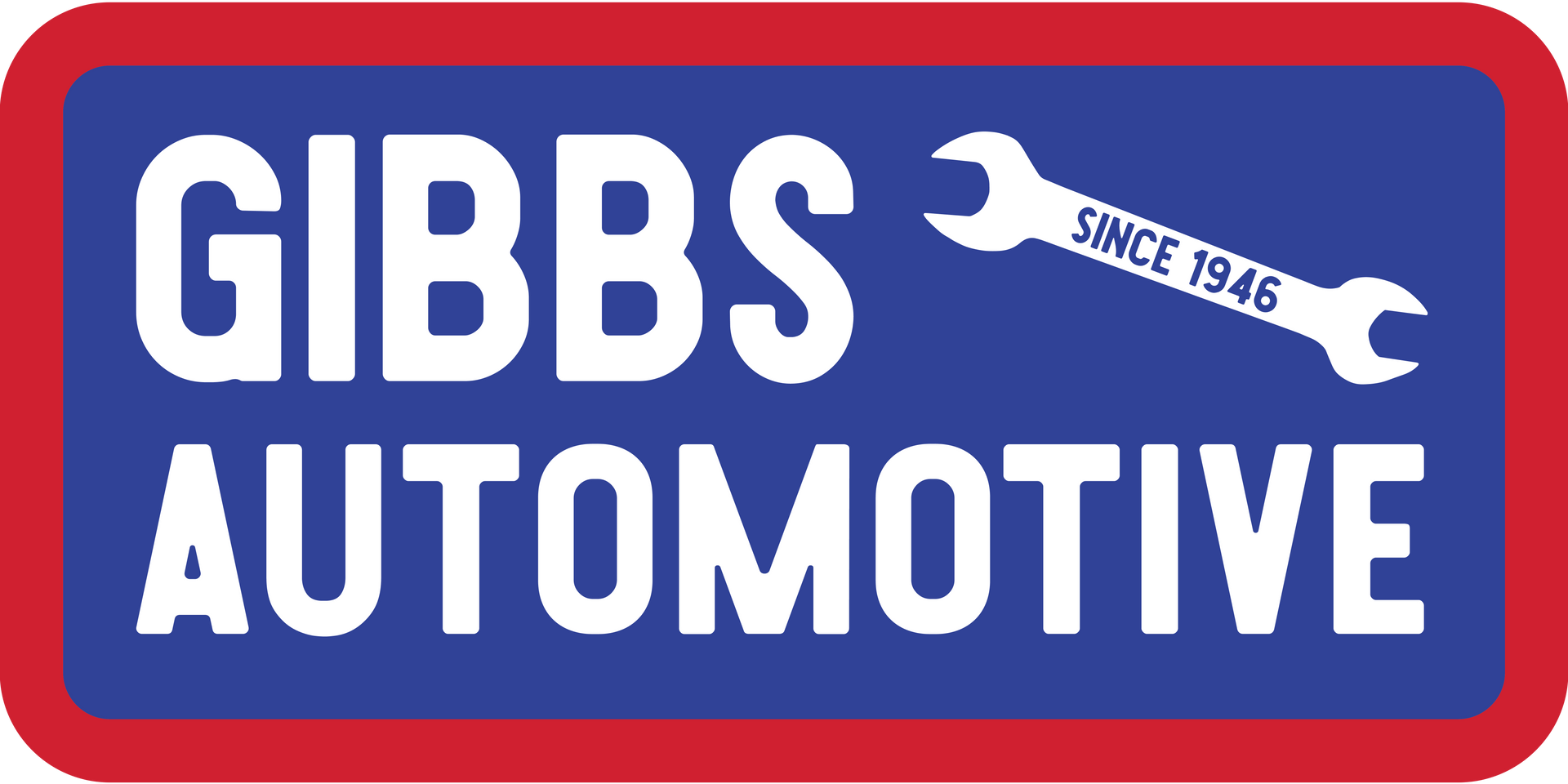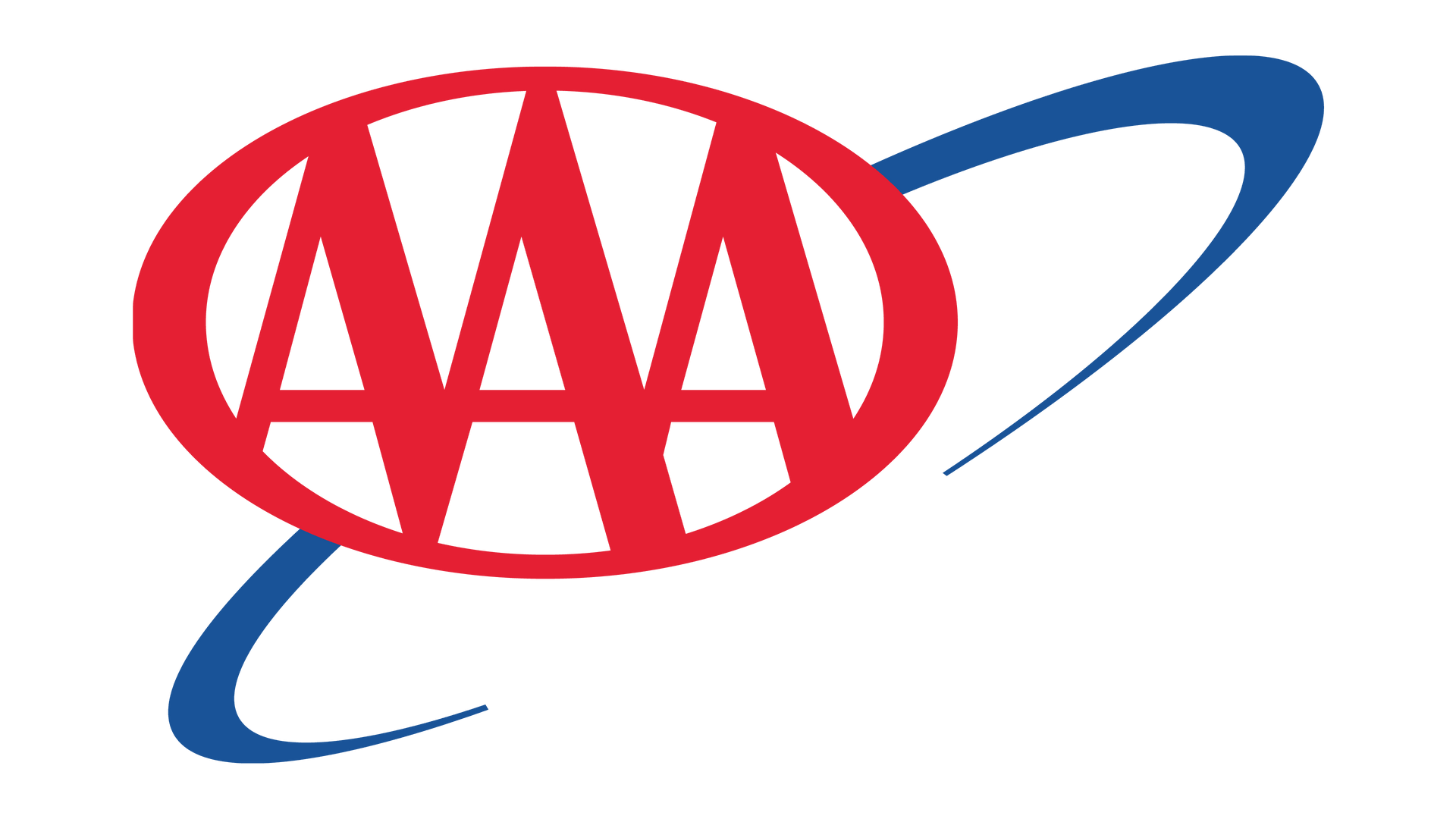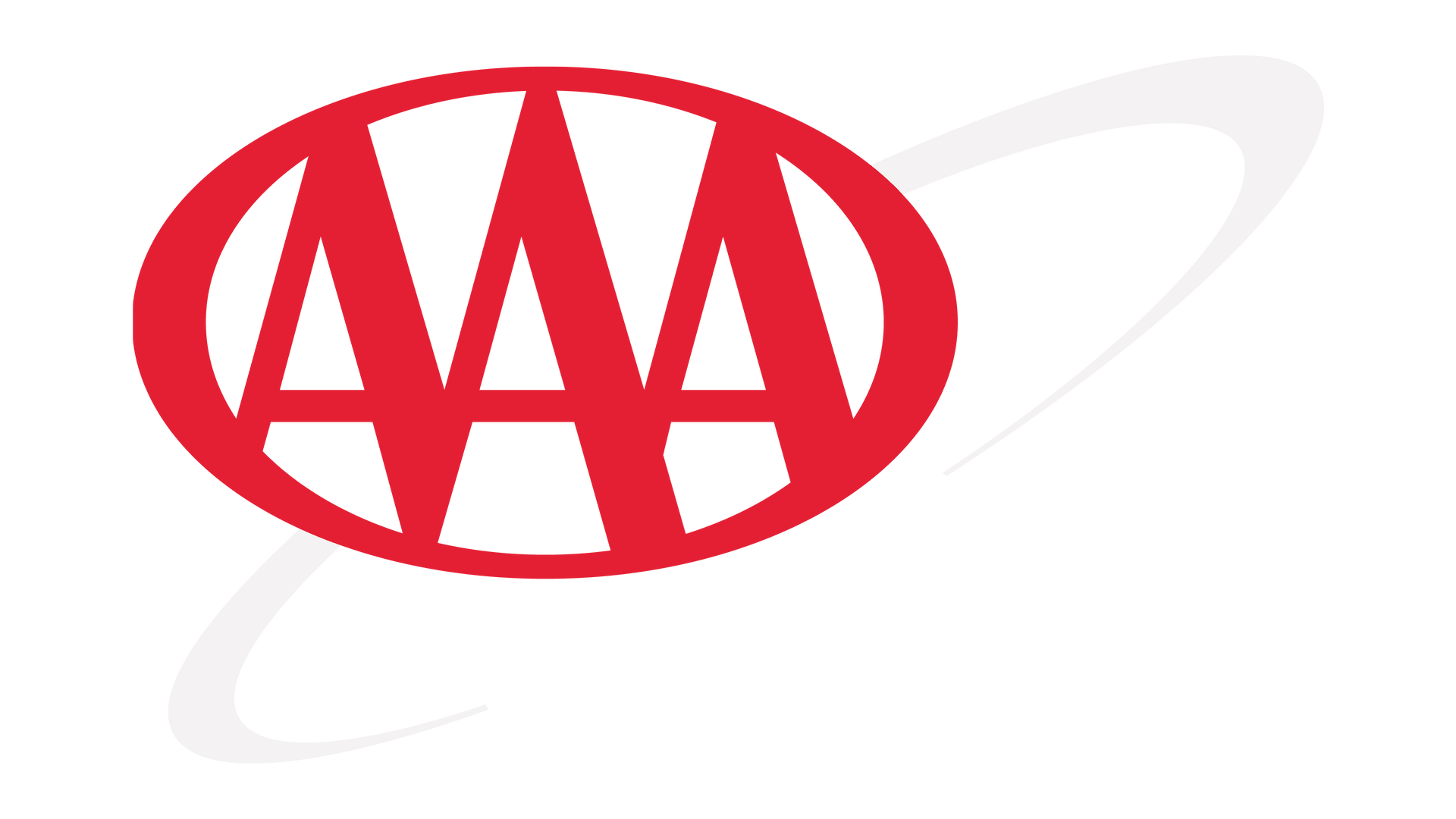BLOG
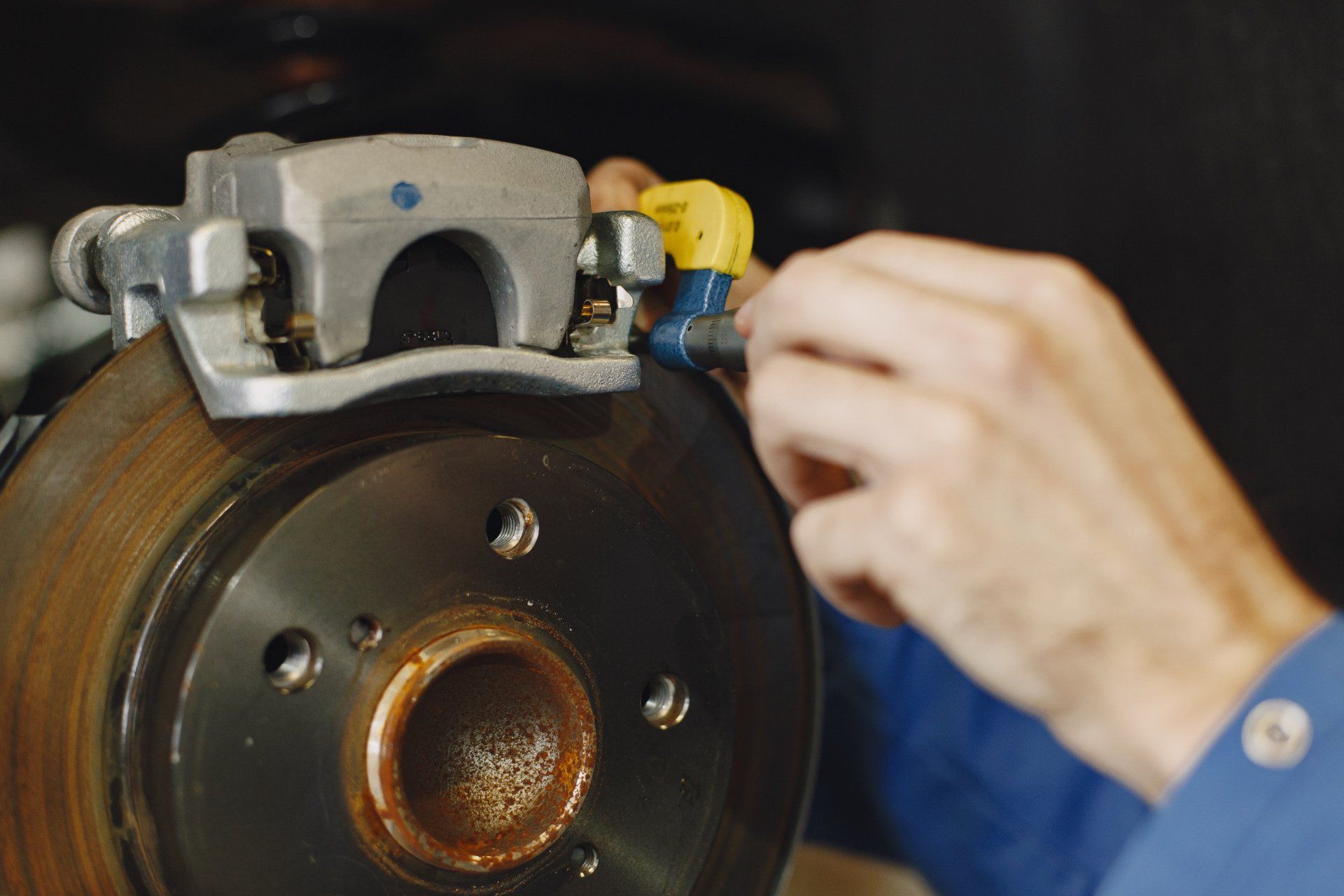
Your brakes are one of the most important safety systems on your car. They’re the difference between stopping safely and risking an accident. The problem is, most drivers wait until their brakes feel really bad before they get them checked. At Gibbs Automotive here in Conyers, we see this all the time, and we get it. Life gets busy, and it’s easy to push off car maintenance until it becomes urgent. But the truth is, catching brake problems early can save you money, keep your vehicle safer, and help you avoid more expensive repairs down the line. So let’s talk about the signs that tell you it’s time to get your brakes inspected. Squeaking or Squealing When You Stop One of the most common early warning signs is a high-pitched squeaking sound when you apply the brakes. This usually happens when your brake pads are getting thin. Manufacturers install a small metal tab that rubs against the rotor when the pad is almost worn out. That sound is your car’s way of telling you, “Hey, it’s time for a check-up.” If you hear squeaking consistently, don’t ignore it. It’s a simple fix now, but if you wait too long, you could end up damaging your rotors, which adds more time and cost to the repair. Grinding or Scraping Sounds If you hear grinding when you stop, that’s a more serious issue. It likely means your brake pads are already worn through, and the metal of the caliper is making contact with the metal rotor. Not only does this reduce your braking ability, but it can lead to deep grooves in the rotor surface, which often means replacement instead of a simple resurface. Grinding is never a normal sound. If your brakes are grinding, bring your car in to see us at Gibbs Automotive as soon as possible. We’ll inspect everything and let you know exactly what needs to be replaced. Vibration or Pulsing in the Brake Pedal Does your brake pedal vibrate or feel like it’s pulsing when you stop? This could be a sign that your brake rotors are warped. Rotors need to stay perfectly smooth and flat to provide consistent braking. Warping can happen over time from heat, age, or uneven wear. This kind of issue doesn’t always feel like an emergency at first, but it absolutely affects how smoothly and safely your car can stop. A quick inspection can confirm whether resurfacing or replacing the rotors is the best route. Longer Stopping Distances If your car feels like it’s taking more effort to come to a stop or is rolling farther than usual, it’s time for an inspection. Brake performance can slowly degrade over time, and you might not notice it until it becomes a problem. Brake fluid contamination, worn pads, or weakened calipers can all lead to reduced stopping power. The sooner we diagnose the cause, the better. You don’t want to find out your brakes aren’t working properly in a split-second emergency situation. Pulling to One Side When Braking If your car veers to the left or right when you brake, that’s usually a sign of uneven brake pressure. This can be caused by a stuck caliper, uneven brake pad wear, or problems in the hydraulic system. Not only is it uncomfortable and potentially dangerous, but it also adds uneven wear to your tires and suspension. A brake inspection can get to the root of the issue and prevent more damage to other parts of your vehicle. Dashboard Brake Light Is On Modern cars are smart enough to tell you when something’s wrong. If your dashboard brake warning light is on, don’t ignore it. That light could be signaling low brake fluid, worn brake pads, or a problem in the brake system. At Gibbs Automotive, we’ll hook up diagnostic equipment to check what triggered the alert and fix it before it becomes a bigger issue. What Happens During a Brake Inspection at Gibbs Automotive? When you bring your vehicle to us for a brake inspection, we don’t just glance at the pads and send you on your way. We perform a full inspection that covers: Brake pad thickness Rotor condition and wear patterns Caliper performance Brake fluid condition and levels Brake line checks for leaks or damage Brake pedal feel and function We’ll walk you through what we find and give you a straightforward plan. If your brakes are in good shape, we’ll tell you. If something needs to be repaired or replaced, we’ll explain why and what it will cost upfront. No surprises. Why Local Service Matters A lot of people think you have to go to a dealership for brake service, but that’s simply not true. At Gibbs Automotive, we use high-quality OEM or better parts, and our ASE-certified technicians know how to service brakes on all makes and models, including European, hybrid, diesel, and high-performance vehicles. Plus, we’re a local business with deep roots in Conyers. We treat our customers like neighbors, because they are. You’re not just another ticket number in our system. You’re someone we want to see come back year after year because you trust us to do the job right. Need a Brake Check? We’ve Got You Covered If anything in this blog sounds familiar, don’t wait. Brakes are not something to gamble with. Whether you’re hearing noises, feeling something off, or just want peace of mind, we’re here to help. Call us or stop by Gibbs Automotive to schedule a brake inspection. We’ll check it out, walk you through what we see, and get you back on the road safely.
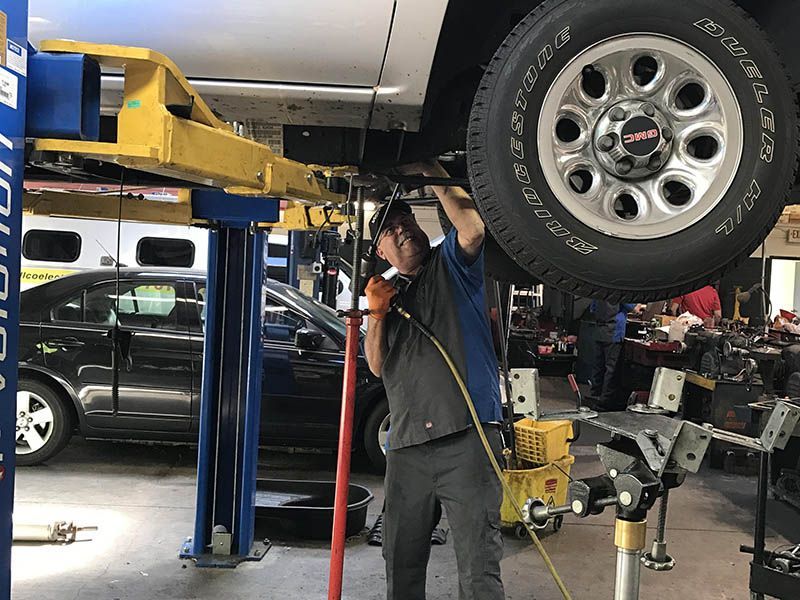
If you’ve ever sat in a dealership waiting room and felt like just another number, you’re not alone. At Gibbs Automotive, we’ve talked to plenty of customers in Conyers who were looking for something better. A place where they know who’s working on their car, where pricing is explained clearly, and where the goal is to get it right the first time. That’s where a local shop like ours stands out. Here are five real reasons to consider choosing a trusted local auto repair shop instead of heading back to the dealership. 1. Transparent Pricing You Can Understand At Gibbs Automotive, we make sure you know what to expect before we start the work. Dealerships can hit you with unexpected fees or push add-ons you don’t really need. We take a different approach. You’ll get a clear estimate upfront and honest answers if we find anything else during the repair. No confusion. No pressure. 2. Personal Service from People Who Know You We’ve been in Conyers since 1946. That means we’ve helped generations of families take care of their vehicles. When you walk into our shop, we take the time to understand what’s going on with your car and how it fits into your life. Whether you drive a Cadillac, Ford, Chevrolet, or something else, we treat you like a neighbor, not a sales quota. 3. No Upselling or Unnecessary Repairs Let’s be honest. Some places push extra services that aren’t needed, just to boost the bill. That’s not how we do things. We perform courtesy multi-point inspections to spot potential issues, but we never recommend repairs unless we truly believe it’s something that will keep you safe or help your car last longer. We want you to trust us and come back because you want to, not because you felt talked into something. 4. Certified Technicians Using the Right Equipment Just because we’re a local shop doesn’t mean we cut corners. Our technicians are ASE-certified, and we use modern diagnostic tools and repair equipment to meet or exceed manufacturer standards. Whether you need a quick oil change, brake service, diagnostics, or a full transmission replacement, we’re ready to handle it. 5. Faster Turnaround and Convenient Scheduling At a dealership, you might wait days or even weeks for an appointment. Here at Gibbs, we’re focused on getting you back on the road as quickly as possible. We open early during the week, have after-hours drop-off, and communicate throughout the process. We know your time is valuable, and we treat it that way. Why It Matters Your vehicle is one of your biggest investments. It deserves care from someone who’s invested in the community and genuinely wants to help. That’s what we offer at Gibbs Automotive. Local, honest, experienced service that you can count on. If your car needs anything from a routine checkup to a major repair, stop by or give us a call. We’d be happy to take a look and let you know exactly what it needs. No guesswork. No games. Schedule your appointment today and experience what local care really feels like.
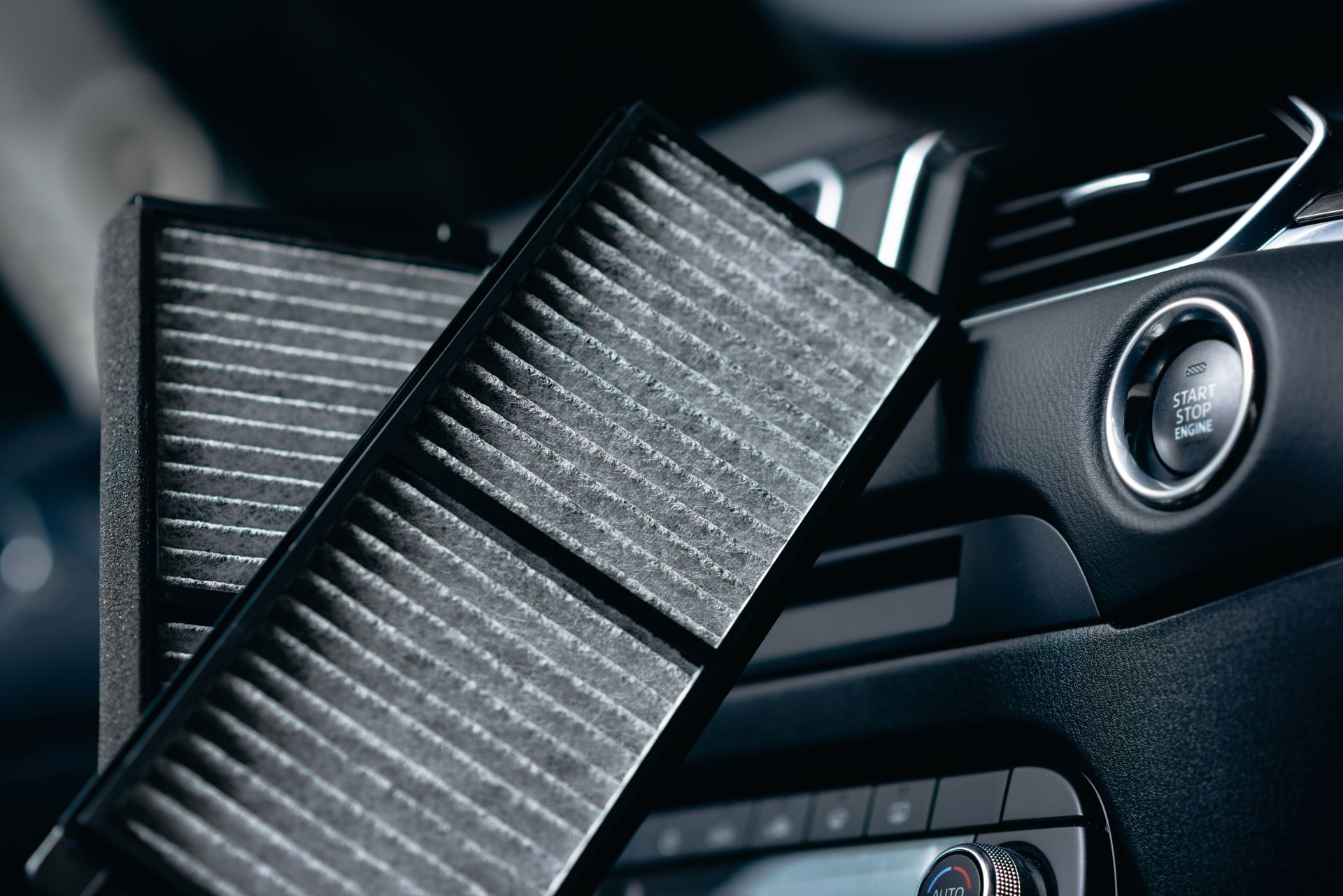
Your vehicle's cabin air filter plays a crucial role in maintaining interior air quality and HVAC system performance. Many drivers in Conyers and throughout Georgia remain unaware this component exists or requires regular replacement, yet it directly impacts driving comfort, passenger health, and system longevity. A failing cabin air filter creates musty odors, reduces airflow, and allows contaminants to circulate throughout your vehicle's interior. Understanding how this filter works and when to replace it helps maintain optimal air quality and prevents costly HVAC repairs. Understanding Your Vehicle's Cabin Air Filter Function The cabin air filter serves as the primary barrier between outside air and your vehicle's interior environment. Located within the HVAC system, this filter captures airborne contaminants before they enter the passenger compartment through heating, ventilation, and air conditioning vents. Primary Functions: Traps dust, pollen, and particulate matter Blocks mold spores and bacteria Filters exhaust fumes and smog Prevents debris from entering HVAC components Maintains consistent airflow quality Similar to residential HVAC filters, automotive cabin air filters become less effective as they accumulate contaminants. When clogged, these filters restrict airflow and allow pollutants to bypass the filtration system entirely. Why Georgia Climate Demands Frequent Filter Changes Georgia's environmental conditions create particularly challenging circumstances for cabin air filters. Several factors accelerate filter contamination in this region: High Pollen Counts : Spring and summer months bring excessive tree, grass, and weed pollen that quickly clogs filter media. Elevated Humidity : Moisture promotes mold and mildew growth within dirty filters, creating persistent odors and health concerns. Road Dust : Construction zones, unpaved surfaces, and heavy traffic generate significant particulate matter that accumulates in filters. Extended Growing Season : Longer periods of plant activity mean continuous pollen production throughout most of the year. Urban Pollution : Vehicle emissions and industrial activity in metropolitan areas increase airborne contaminants. These conditions require more frequent filter inspection and replacement compared to drier, less polluted regions. Recognizing Cabin Air Filter Replacement Signs Several symptoms indicate your cabin air filter needs immediate attention: Reduced Airflow Volume : Vents produce noticeably less air movement even at maximum fan settings, indicating significant filter blockage. Persistent Odors : Musty, moldy, or sour smells from vents suggest bacterial or mold growth within a contaminated filter. Increased Interior Dust : Excessive dust accumulation on dashboard surfaces and seats indicates filter bypass or failure. HVAC System Noise : Blower motor strain from restricted airflow creates unusual sounds during operation. Allergy Symptom Escalation : Increased sneezing, congestion, or respiratory irritation while driving suggests compromised air filtration. Window Fogging Issues : Restricted airflow affects defogging performance, particularly problematic in humid conditions. Visible Filter Contamination : Dark discoloration, debris accumulation, or structural damage visible during inspection. Early recognition of these symptoms prevents system damage and maintains optimal air quality. Optimal Replacement Intervals for Georgia Conditions Manufacturer recommendations typically suggest cabin air filter replacement every 15,000 to 30,000 miles. However, Georgia's environmental conditions often require more frequent service intervals. Recommended Schedule for Georgia: Standard conditions: Every 12,000 to 15,000 miles High pollen areas: Every 8,000 to 12,000 miles Urban driving: Every 10,000 to 12,000 miles Severe conditions: Every 6,000 to 8,000 miles Factors Requiring Frequent Replacement: Regular driving during high pollen seasons Extended time in stop-and-go traffic Parking under trees or in dusty areas Operating with windows open frequently Living near construction or industrial zones Annual inspection regardless of mileage ensures optimal performance in Georgia's challenging climate. Consequences of Neglected Cabin Air Filter Maintenance Ignoring cabin air filter replacement creates multiple problems affecting comfort, health, and vehicle systems: HVAC System Damage : Restricted airflow forces blower motors to work harder, increasing wear and potentially causing premature failure requiring expensive repairs. Reduced Energy Efficiency : Overworked fans draw additional electrical power, placing extra load on the alternator and affecting fuel economy. Persistent Interior Odors : Accumulated moisture and organic matter in dirty filters create breeding grounds for mold and bacteria, producing unpleasant smells. Compromised Air Quality : Passengers breathe higher concentrations of allergens, pollutants, and particulates, particularly problematic for individuals with respiratory conditions. Impaired Visibility : Inadequate defogging performance creates safety hazards during humid weather or temperature changes. Increased Cleaning Requirements : More dust and debris enter the interior, requiring frequent cleaning of surfaces and upholstery. Regular filter replacement prevents these issues while maintaining system efficiency and passenger comfort. Selecting Appropriate Cabin Air Filter Types Cabin air filters come in several configurations designed for different performance levels and specific needs: Standard Particulate Filters : Basic paper or synthetic media that captures dust, pollen, and larger particles effectively for general use. High-Efficiency Filters : Enhanced filtration media removes smaller particles including fine dust, bacteria, and some exhaust particles. Activated Carbon Filters : Charcoal-impregnated media absorbs odors, gases, and chemical fumes while providing standard particulate filtration. HEPA-Style Filters : Hospital-grade filtration removes microscopic particles and allergens for maximum air quality improvement. Electrostatic Filters : Washable synthetic media that captures particles through static charge, offering reusable filtration option. Professional technicians can recommend the optimal filter type based on your vehicle specifications, driving conditions, and air quality preferences. Professional Installation and Maintenance Benefits While some cabin air filters are accessible for DIY replacement, professional service ensures proper installation and system evaluation: Correct Filter Orientation : Proper installation direction maintains optimal airflow and filtration efficiency. System Inspection : Technicians check HVAC components for damage or debris that might affect performance. Housing Cleaning : Professional service includes cleaning the filter housing to remove accumulated contaminants. Performance Testing : Post-installation testing verifies proper airflow and system operation. Maintenance Schedule : Professionals establish appropriate replacement intervals based on local conditions and driving habits. Warranty Protection : Professional installation often includes service warranties and guarantees. Expert service maximizes filter performance and identifies potential HVAC issues before they require major repairs. Maintaining Optimal Indoor Air Quality Beyond regular filter replacement, several practices help maintain excellent cabin air quality: Use Recirculation Mode : During heavy traffic or high pollution periods, recirculate interior air to reduce outside contaminant exposure. Park Strategically : Choose covered or indoor parking when possible to minimize pollen and dust accumulation. Regular Interior Cleaning : Vacuum carpets and clean surfaces frequently to remove particles that bypass filtration. Window Management : Keep windows closed during high pollen days and use HVAC system for air circulation. Professional Detailing : Periodic deep cleaning removes embedded contaminants from upholstery and ventilation systems. These practices complement proper filter maintenance for optimal air quality and system performance. Expert Cabin Air Filter Service in Conyers Regular cabin air filter maintenance protects your health, maintains system efficiency, and prevents expensive HVAC repairs. Professional automotive service includes comprehensive filter inspection, proper replacement procedures, and system performance evaluation. Quality filter service ensures clean, comfortable driving conditions regardless of Georgia's challenging environmental conditions. Certified technicians identify the right filter type for your specific needs and establish appropriate maintenance schedules. Contact Gibbs Automotive at (770) 761-1119 or schedule service online for professional cabin air filter inspection and replacement in Conyers, Georgia.
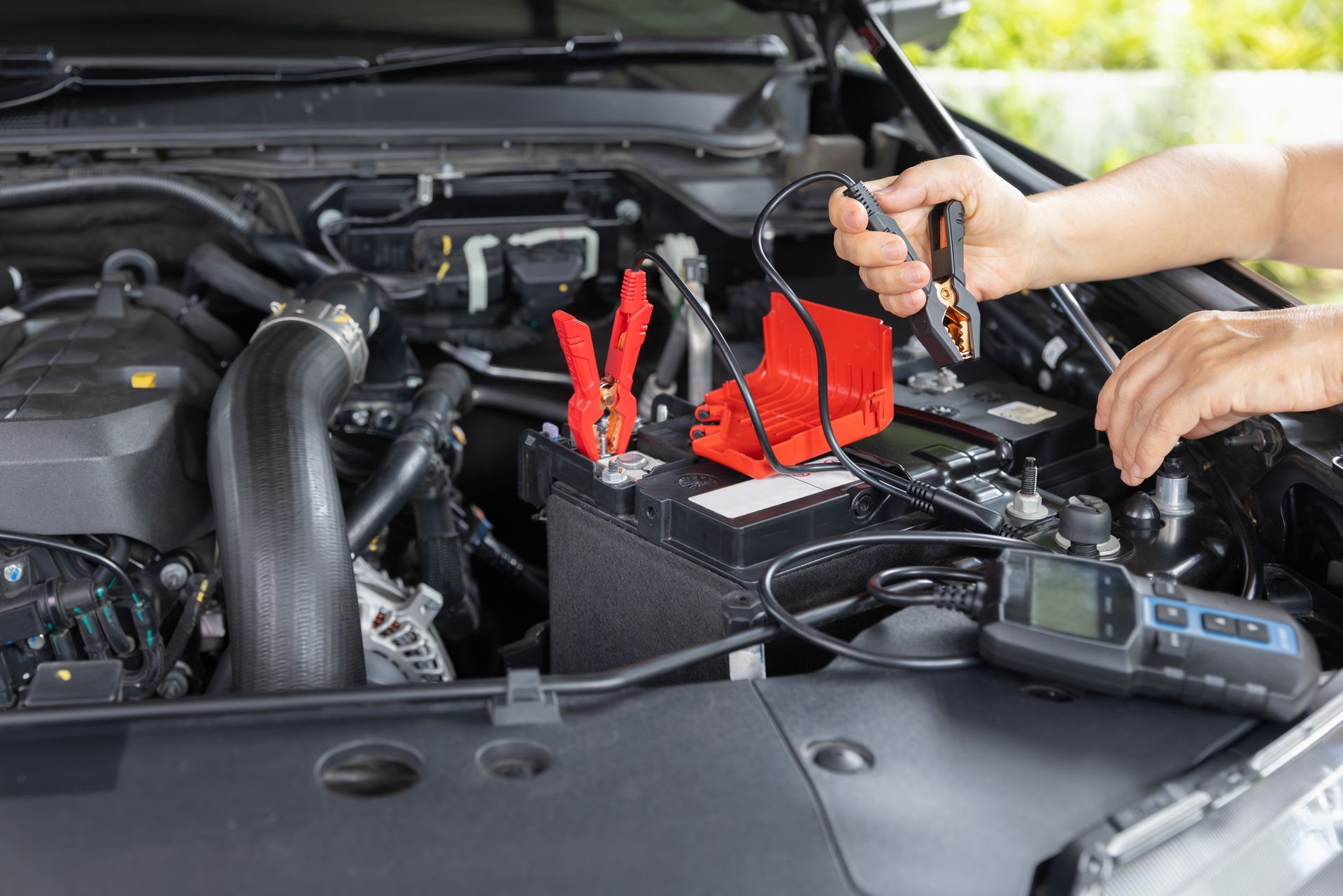
Georgia's hot, humid climate creates challenging conditions for vehicle batteries. In Conyers and throughout Georgia, extreme summer temperatures and high humidity levels accelerate battery deterioration, often catching drivers off guard when their battery fails unexpectedly. Understanding how Georgia's weather affects your car battery can help you avoid being stranded with a dead battery and extend your battery's lifespan through proper maintenance. Why Heat Destroys Car Batteries Faster Than Cold Most drivers believe winter weather poses the greatest threat to car batteries, but summer heat actually causes more permanent damage. Georgia's high temperatures create several problems for automotive batteries: Heat Acceleration : Elevated temperatures speed up chemical reactions inside the battery, causing faster degradation of internal components. Fluid Evaporation : Extreme heat causes battery electrolyte fluid to evaporate more rapidly, exposing internal plates to air and accelerating corrosion. Internal Corrosion : When electrolyte levels drop, the exposed battery components corrode quickly, reducing both battery capacity and lifespan. Humidity Effects : Georgia's high humidity promotes terminal corrosion, creating resistance that interferes with proper electrical connections and reduces charging efficiency. Batteries older than two years face significantly higher failure rates during Georgia's intense summer months. Warning Signs of Battery Failure Car batteries rarely fail without warning. Watch for these common symptoms that indicate your battery needs attention: Slow Engine Cranking : The starter motor turns more slowly than normal when starting your vehicle, indicating reduced battery power output. Dim Dashboard Lights : Interior lights, dashboard illumination, or headlights appear dimmer than usual or flicker during operation. Terminal Corrosion : White, blue, or green powdery buildup around battery terminals restricts electrical flow and signals developing problems. Battery Case Swelling : Heat damage causes battery cases to bulge or expand, indicating internal damage and potential failure. Warning Lights : Check engine lights or battery warning indicators on your dashboard require immediate attention. Electrical Issues : Intermittent problems with power windows, radio, or other electrical components may indicate battery voltage problems. Even if your vehicle still starts reliably, these symptoms suggest your battery needs professional testing. Car Battery Lifespan in Georgia Climate Most automotive batteries last three to five years under normal conditions. However, Georgia's climate typically reduces battery life to two to four years due to constant exposure to heat and humidity. Factors affecting battery life in Georgia include: Average summer temperatures exceeding 90°F High humidity levels throughout most of the year Frequent stop-and-go traffic in urban areas Extended use of air conditioning systems Regular battery testing becomes essential as your battery approaches the two-year mark in Georgia's demanding climate. Extending Battery Life in Hot Weather While you cannot control Georgia's weather, these practices help minimize heat stress on your battery: Parking Strategy : Park in shaded areas, garages, or covered parking whenever possible to reduce under-hood temperatures. Driving Habits : Avoid frequent short trips that prevent the alternator from fully recharging the battery. Combine errands into longer drives when practical. Electrical Management : Turn off headlights, air conditioning, radio, and other electrical accessories before shutting off the engine to prevent parasitic drain. Terminal Maintenance : Clean battery terminals monthly using a wire brush and baking soda solution to remove corrosion and ensure solid connections. Charging System Service : Have your alternator and voltage regulator tested annually to ensure proper battery charging during operation. Battery Inspection : Check battery case condition and electrolyte levels if your battery has removable caps. These maintenance practices significantly extend battery life, especially in Georgia's challenging climate conditions. Professional Battery Testing Benefits Proactive battery testing prevents roadside emergencies and unexpected breakdowns. Professional battery testing provides: Load Testing : Measures actual battery capacity under simulated engine starting conditions. Voltage Analysis : Checks resting voltage and charging system performance. Internal Resistance Testing : Identifies developing problems before complete failure occurs. Charging System Evaluation : Verifies alternator output and voltage regulator function. Most battery failures can be predicted and prevented through regular professional testing every six months in Georgia. Selecting Batteries for Georgia Weather When replacing your battery, choose one specifically designed for high-temperature conditions: Heat Resistance Rating : Look for batteries rated for extreme temperature operation with enhanced heat tolerance. Proper Group Size : Ensure the replacement battery matches your vehicle's physical dimensions and terminal configuration exactly. Cold Cranking Amps : Although Georgia winters are mild, adequate CCA ratings ensure reliable starting in all conditions. Reserve Capacity : Higher reserve capacity provides longer electrical system support if charging problems develop. Warranty Coverage : Choose batteries with comprehensive warranties that cover heat-related failures common in southern climates. Brand Reputation : Select established battery manufacturers with proven performance records in hot climate applications. Professional installation ensures proper fit and optimal performance from your new battery. How Weak Batteries Affect Vehicle Systems Car batteries do more than start engines. They stabilize voltage for all electrical systems and support alternator operation. Weak batteries cause: Alternator Strain : Forces the alternator to work harder, potentially causing premature failure. Starter Motor Damage : Inadequate voltage damages starter components over time. Electronic System Problems : Modern vehicles rely on stable voltage for engine management, transmission control, and safety systems. Sensor Malfunctions : Voltage fluctuations cause erratic readings from oxygen sensors, mass airflow sensors, and other critical components. Addressing battery problems early prevents expensive damage to other vehicle systems. Professional Battery Service in Conyers Regular battery maintenance and testing protect your investment and prevent inconvenient breakdowns. Professional automotive service includes comprehensive battery system evaluation, proper installation of replacement batteries, and charging system diagnostics. Quality battery service ensures reliable vehicle operation regardless of Georgia's weather extremes. Certified technicians can identify potential problems before they leave you stranded and recommend appropriate solutions for your specific vehicle and driving conditions. Contact Gibbs Automotive at (770) 761-1119 or schedule service online for professional battery testing and replacement services in Conyers, Georgia.
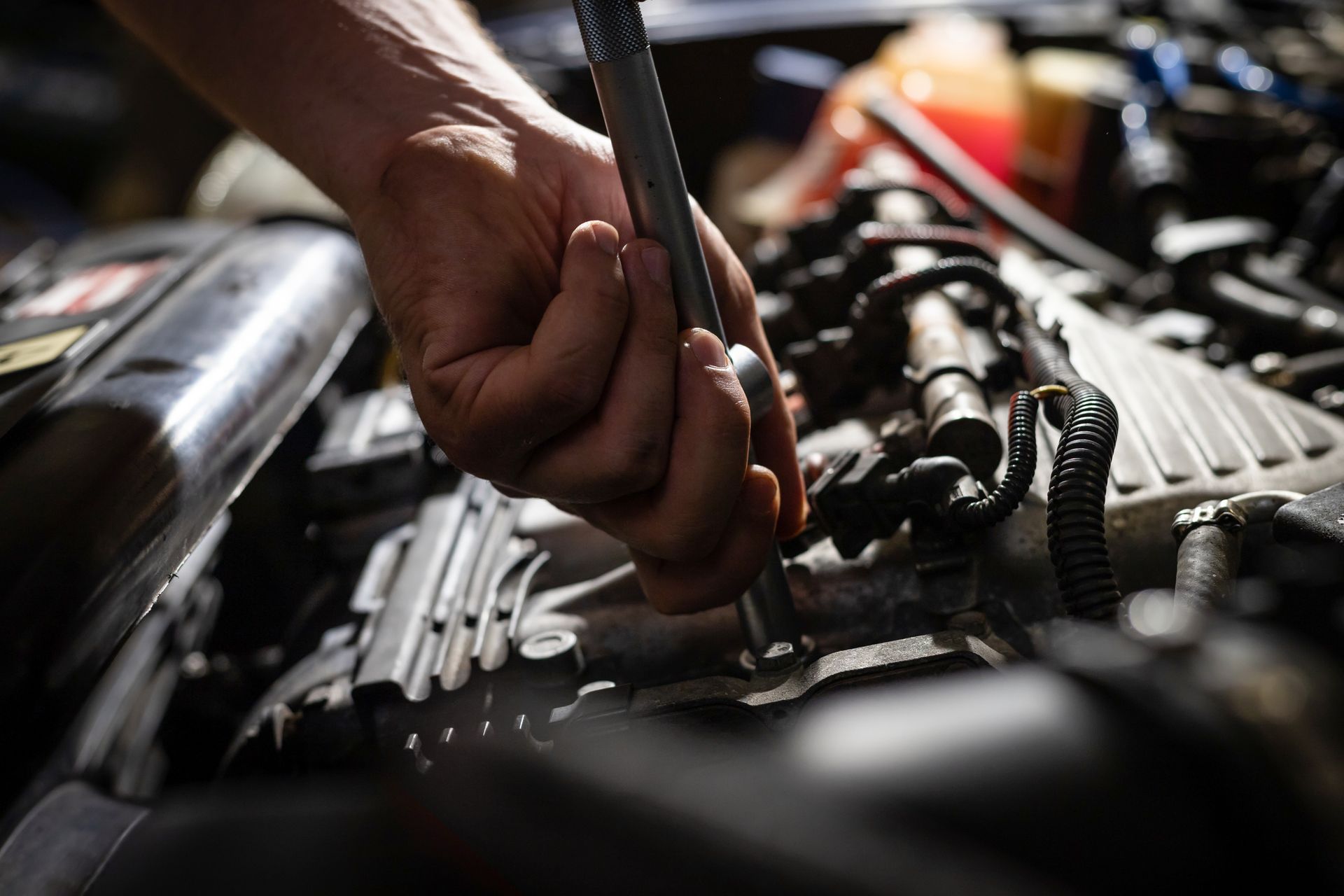
If your car feels sluggish, hesitates when accelerating, or your fuel economy isn’t what it used to be, your fuel system might be the problem. Over time, fuel injectors can clog, pumps can weaken, and filters can fill with debris—especially if your vehicle has high mileage or hasn't had fuel service in a while. At Gibbs Automotive in Conyers, GA, we offer complete fuel system services to help restore your vehicle’s power, improve gas mileage, and prevent long-term engine wear. Whether you drive a sedan, truck, or SUV, our ASE-certified team can diagnose and repair fuel-related issues to keep your engine running smoothly. What Does the Fuel System Do? Your vehicle’s fuel system is responsible for storing, filtering, and delivering fuel to the engine at the right time and pressure. It includes the fuel tank, fuel pump, fuel lines, fuel injectors, and filters. When any part of this system starts to degrade or clog, you may notice performance problems such as reduced acceleration, stalling, hard starts, or decreased efficiency. Signs Your Fuel System Needs Service Not sure if your fuel system is due for service? Watch for these signs: Trouble starting or frequent stalls Loss of power while driving or accelerating Poor fuel economy Engine misfires Rough idling or hesitation Unusual smells or fuel leaks Even one of these issues can signal it’s time to bring your vehicle in for an inspection. Our Fuel System Services Include We offer a full range of fuel system services, including: Fuel system diagnostics using professional-grade tools Fuel injector inspection, cleaning, and replacement Fuel pump testing and replacement Fuel filter replacements Throttle body cleaning Complete fuel system clean-outs to remove carbon buildup We’ll evaluate your system based on your vehicle’s age, mileage, and symptoms, then recommend the best course of action. No unnecessary services, no pressure—just honest recommendations to keep your vehicle running right. Why This Matters for Georgia Drivers In Georgia’s climate, especially during hot summer months, your engine and fuel system are under extra stress. Short trips, long idle times, and heat-related vapor buildup can all impact fuel delivery. If your injectors are even slightly clogged, your vehicle won’t run as efficiently, and you’ll end up wasting fuel every time you drive. Regular fuel system maintenance helps you avoid those issues, improve power, and extend the life of your engine. Why Choose Gibbs Automotive We’ve served the Conyers community for years, helping drivers keep their vehicles running like new. Our shop is equipped with the tools and experience needed to diagnose even the most stubborn fuel system issues, and we take the time to explain everything we find before doing any work. If you need fuel injector service, pump replacement, or just want to have your system checked out before the next long drive, we’re ready to help. Final Thoughts Fuel system problems can sneak up on you, but they don’t have to lead to major repairs if you catch them early. Whether you’re looking for better gas mileage or trying to eliminate sluggish performance, bring your vehicle to Gibbs Automotive in Conyers. We’ll take a close look, explain what’s going on, and help you get the best out of your car—mile after mile.
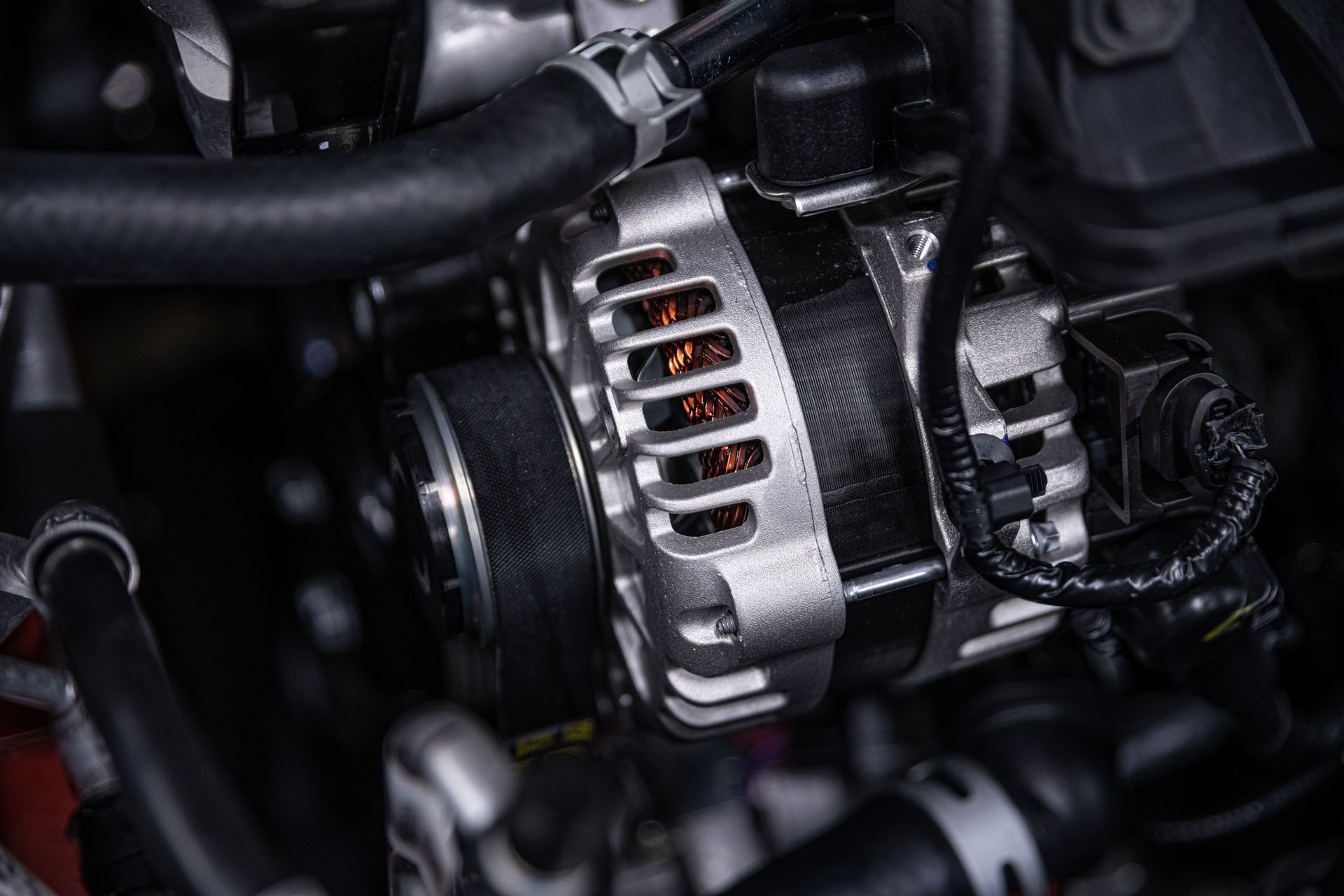
Most drivers don’t think about their car’s charging system—until it fails. One day everything’s fine, and the next your dashboard lights up, your vehicle won’t start, or worse, it dies while you’re driving. It’s frustrating, inconvenient, and usually avoidable. At Gibbs Automotive in Conyers, GA, we help local drivers stay ahead of charging system failure by spotting early signs and providing expert diagnostics and repairs. Georgia heat, frequent short trips, and aging electrical systems all put stress on your vehicle’s battery, alternator, and starter—especially during the spring and summer seasons. Here’s how to tell if your charging system needs attention, and what to do before it leaves you stranded. What Makes Up the Charging System? Your vehicle’s charging system consists of three main parts: The battery, which powers everything when the engine is off and helps start the vehicle The alternator, which generates electricity while the engine is running and keeps the battery charged The voltage regulator, which controls the flow of power between the alternator and the battery When any of these components start to fail, your vehicle may begin to show signs—sometimes subtle, sometimes obvious. Common Warning Signs of Charging System Failure If you’re noticing any of the following issues, it’s a good idea to bring your vehicle in for an electrical check: Dim or flickering headlights Battery or charging system warning light on the dash A slow or hesitant start Strange electrical behavior (radio cutting out, dashboard going dark) A burning smell near the alternator The engine stalls while driving Some issues may appear only once or twice before getting worse. Others seem to come out of nowhere. Either way, catching them early is the key to avoiding a tow or a no-start situation. How Georgia Weather Affects Your Charging System Conyers drivers face more heat and humidity than most areas of the country, especially during the spring-to-summer transition. That heat can accelerate battery corrosion and put extra strain on alternators and voltage regulators. If your vehicle sits for long periods or is used mainly for short trips, your battery may never get fully recharged. These conditions shorten the lifespan of charging system components, even in newer vehicles. That’s why we always recommend testing your battery and alternator if you’re heading into a heavy driving season or if it’s been more than a year since your last inspection. How Gibbs Automotive Diagnoses Charging Issues When you bring your vehicle to us for a charging system inspection, we go beyond just reading a battery voltage. Our diagnostics include: Load testing the battery to check actual capacity Testing the alternator’s output while the engine is running Inspecting belts, connections, and grounds for corrosion or wear Checking for parasitic drains (when the battery loses charge while the car is off) Once we have a clear picture, we’ll explain exactly what’s working, what’s starting to fail, and what needs to be done—if anything at all. Can You Just Replace the Battery and Be Done? Not always. In some cases, a failing alternator will drain even a brand-new battery. Or a loose ground wire may mimic a dead battery when the real issue is electrical. Swapping the battery without solving the underlying problem could leave you back where you started within days. That’s why it’s important to test the full system, not just the battery. We’ve helped plenty of drivers avoid unnecessary replacements—and helped others catch hidden issues before they caused major inconvenience. How Often Should You Check Your Charging System? We recommend testing the battery and alternator at least once a year—ideally in spring or early summer when Georgia’s heat starts to ramp up. If your battery is more than three years old or you’ve had electrical issues in the past, it’s especially important to stay ahead of it. You can have the system tested during a routine oil change or as part of a general spring inspection. It’s a quick service that offers a lot of peace of mind. Why Drivers in Conyers Trust Gibbs Automotive We’ve built our reputation by giving local drivers clear, honest answers. Whether your vehicle just needs a battery or something deeper like an alternator replacement, we’ll walk you through it without the upsell. Our ASE-certified technicians use professional-grade testing equipment and take the time to explain what’s happening in terms you can actually understand. Call us or book your electrical system check online today. We’ll get you in fast and make sure your vehicle is ready for spring and summer. Final Thoughts Charging system problems don’t always start with a dead battery. Sometimes they begin with a flicker, a hesitation, or a strange noise. Catching those signs early can save you time, money, and stress later. If your vehicle is acting up—or you just want to make sure it’s ready for the road—bring it to Gibbs Automotive in Conyers. We’ll keep your electrical system strong and your car starting reliably, every time.
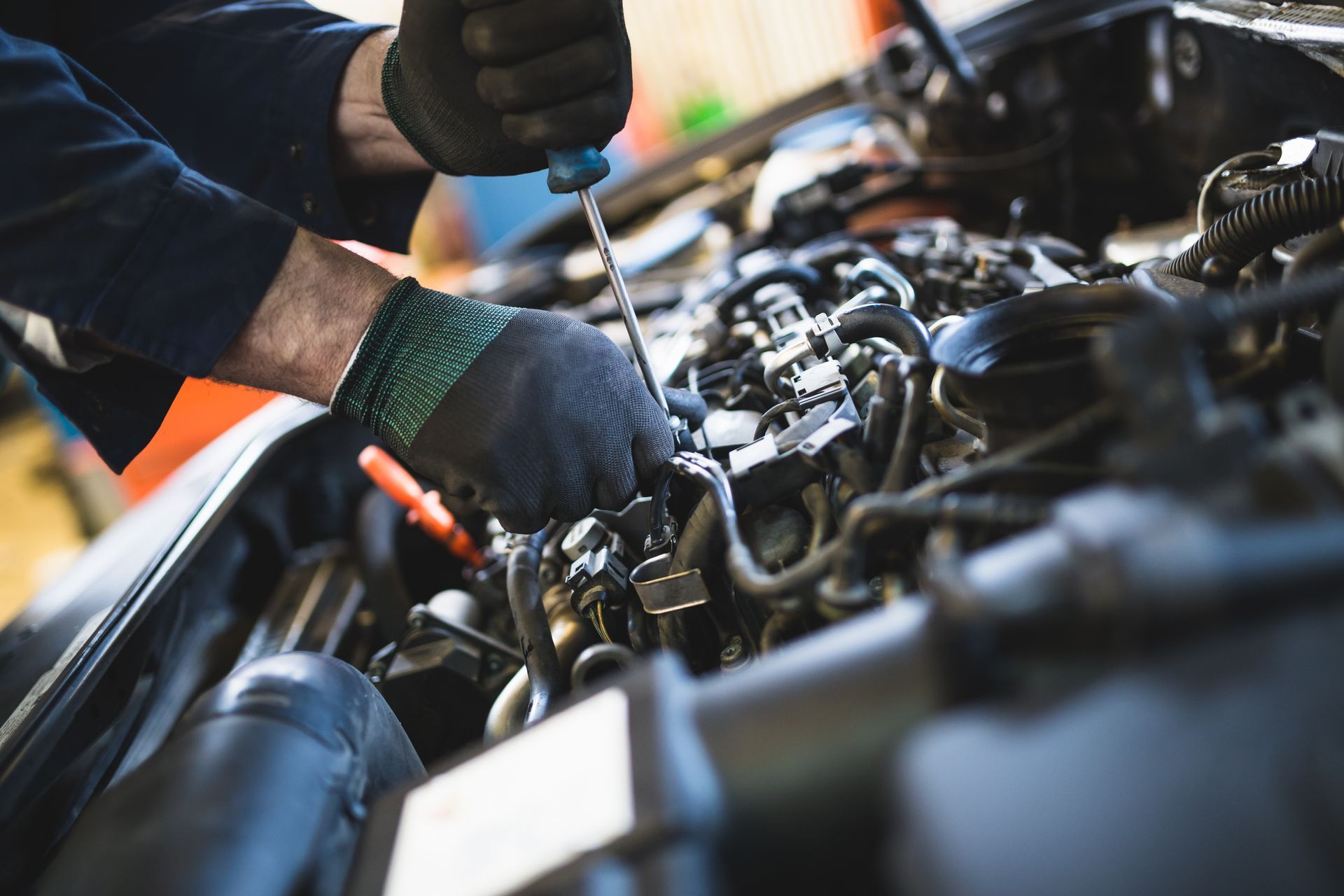
Getting the Most Out of Your Vehicle: When to Schedule a Tune-Up in Conyers, GA A lot of drivers think tune-ups are a thing of the past—something older cars needed every few thousand miles. But the truth is, modern vehicles still need regular attention to keep running at their best. The service looks a little different than it used to, but the goal is the same: restore performance, improve fuel efficiency, and catch small issues before they become big ones. At Gibbs Automotive in Conyers, we perform modern tune-ups for all makes and models, whether your car is pushing 200,000 miles or still under warranty. And spring or early summer is the perfect time to get one done. Here’s what you need to know about when and why to schedule a tune-up—and how we help local drivers stay ahead of engine problems. What Is a Modern Tune-Up? These days, a tune-up isn’t just replacing spark plugs and calling it a day. Depending on the age and mileage of your vehicle, a tune-up may include: Replacing spark plugs and wires Checking or replacing ignition coils Cleaning or replacing the fuel injectors Inspecting and replacing air filters Checking PCV valves and sensors Running diagnostic tests to catch trouble codes Adjusting timing or idle (if needed) It’s all about restoring your engine to peak efficiency and preventing rough starts, poor fuel economy, or performance issues. Signs Your Vehicle Might Be Due for a Tune-Up If you’ve noticed any of the following lately, it’s a good time to bring your car in: Decreased fuel efficiency Sluggish acceleration Engine shaking or rough idling Unusual noises while driving Trouble starting A check engine light with no obvious cause Even if your car isn’t showing symptoms, if it’s been more than a year since your last comprehensive engine service, you may be due. Why Tune-Ups Matter in Georgia’s Climate Our hot, humid summers and unpredictable spring weather take a toll on your engine. Add in stop-and-go traffic, short trips, and heavy air conditioner use, and your vehicle works harder than most people realize. A tune-up in spring or early summer gives your engine a reset before the most demanding driving season of the year. It also gives us a chance to inspect components that wear out faster in the heat—like belts, hoses, batteries, and fluids. Can a Tune-Up Save You Money? Absolutely. A well-maintained engine runs more efficiently, which means better gas mileage, fewer emissions, and less wear on parts over time. Plus, catching a bad spark plug or sensor early could help you avoid costly repairs later. We’ve had customers bring in vehicles that were running rough, only to find that a simple plug replacement or filter cleaning made a huge difference. How Often Should You Schedule a Tune-Up? It varies by vehicle. Some manufacturers recommend major tune-up service every 30,000 to 60,000 miles, while others go longer. If you’re not sure, we can look up your maintenance schedule and let you know what’s recommended based on mileage and condition. That said, if your vehicle is past 75,000 miles and hasn’t had one in a while, it’s a good idea to schedule it soon—especially if you’re planning road trips this summer. Why Conyers Drivers Trust Gibbs Automotive for Tune-Ups We’ve helped thousands of local drivers in Conyers keep their vehicles running smoother, longer. Our tune-ups are done by ASE-certified technicians who understand the unique demands Georgia weather puts on your vehicle. We use high-quality replacement parts, check everything from top to bottom, and give you clear feedback on what’s needed now versus what to watch for later. Final Thoughts A tune-up might not sound urgent, but it’s one of the smartest ways to keep your car running at its best. Better performance. Lower fuel costs. More confidence on the road. If it’s been a while since your last tune-up, bring your vehicle to Gibbs Automotive in Conyers. We’ll give your engine a thorough inspection and get it ready for the season ahead.
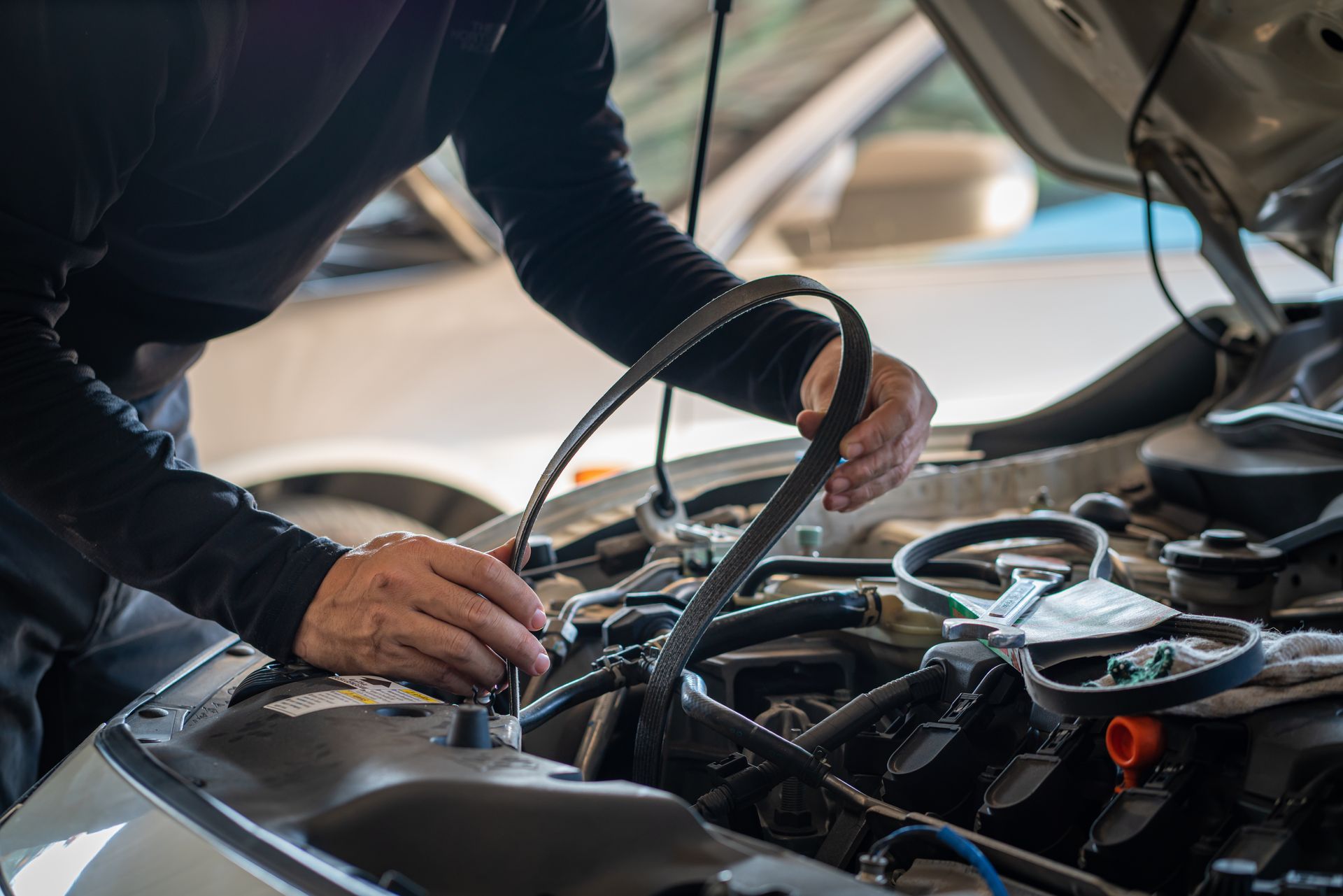
Some car repairs are inconvenient. Others are expensive. And then there’s the timing belt—one of those critical components that, if ignored too long, can lead to catastrophic engine damage. At Gibbs Automotive in Conyers, GA, we’ve seen what happens when timing belts break unexpectedly, and it’s not pretty. That’s why we always recommend being proactive. Replacing your timing belt before it fails can save you thousands of dollars and keep your vehicle running safely for years to come. Here’s what every Conyers driver should know about their timing belt, how to tell if it's wearing out, and when to schedule service. What Does a Timing Belt Actually Do? The timing belt keeps your engine’s internal components in sync—specifically the crankshaft and camshaft. This coordination ensures that the valves and pistons move in harmony. If that timing is even slightly off, it can affect how your engine runs. If the belt breaks while the engine is running, those moving parts can crash into each other. In an interference engine (which many modern vehicles have), that can lead to bent valves, damaged pistons, or even a ruined engine block. In short, the timing belt may be out of sight, but it should never be out of mind. When Should You Replace Your Timing Belt? Most timing belts should be replaced every 60,000 to 100,000 miles, depending on the vehicle. Some newer vehicles can go a bit longer, while others need attention sooner. If you're not sure when yours was last replaced—or if it ever has been—it's worth checking your owner's manual or asking us to look it up for you. In Georgia’s hot, humid conditions, belts can wear out faster, especially if your vehicle is used for stop-and-go traffic, towing, or frequent short trips around town. At Gibbs Automotive, we recommend having your timing belt inspected during your major mileage services or if you’ve recently purchased a used vehicle and don’t know its service history. Signs Your Timing Belt Might Be Wearing Out Unfortunately, timing belts don’t always give much warning before they fail—but there are a few symptoms that can suggest it’s time for a replacement: Ticking or clicking noises coming from the engine Difficulty starting the engine or rough idling Loss of power or engine misfiring Oil leaking from the front of the engine A check engine light combined with performance issues If your car is showing any of these signs—or if you’re approaching the recommended mileage—it’s time to get it checked before a small problem becomes a big one. Timing Belt vs. Timing Chain—What’s the Difference? Some vehicles use a timing chain instead of a belt. Timing chains are generally more durable and don’t require replacement as often, but they can still wear out, especially if oil changes have been neglected. If you’re not sure which one your vehicle has, we’ll be happy to look it up and let you know whether a belt or chain service is recommended based on your engine type and driving habits. Why Timing Belt Replacement Isn’t a DIY Job Replacing a timing belt is a complex job. It involves removing multiple engine components, ensuring precise alignment of parts, and, in some cases, replacing the water pump and tensioners at the same time. It’s not something most drivers should attempt on their own. At Gibbs Automotive, our technicians have the tools, training, and experience to replace your timing belt correctly and reset everything to factory specs. We also take the opportunity to inspect other nearby components—like seals, gaskets, and pulleys—while we’re in there, so you don’t have to worry about related issues later on. Why It’s Smart to Replace the Water Pump Too In many engines, the water pump is located behind or near the timing belt. Since the labor to get there is the same, it makes sense to replace both at the same time if they’re nearing the end of their life. It’s one of those “do it once, do it right” situations that helps you save money on future repairs and avoid coolant leaks or overheating down the line. Get Ahead of Problems with a Timing Belt Inspection in Conyers Spring and summer are prime driving seasons in Georgia. Whether you’re planning a vacation, more weekend driving, or just commuting daily, now is the time to make sure your engine is in good shape. If your timing belt is due—or you’re not sure when it was last serviced—schedule a quick inspection with Gibbs Automotive. We’ll give you an honest answer and walk you through the next steps if replacement is needed. Final Thoughts Timing belt failure is one of the most preventable causes of serious engine damage. Replacing it on time is an investment in your vehicle’s long-term health—and your own peace of mind. If your vehicle is approaching the mileage window or showing signs of wear, don’t wait. Let the team at Gibbs Automotive take care of it now so you can enjoy a smooth, worry-free summer on the road.
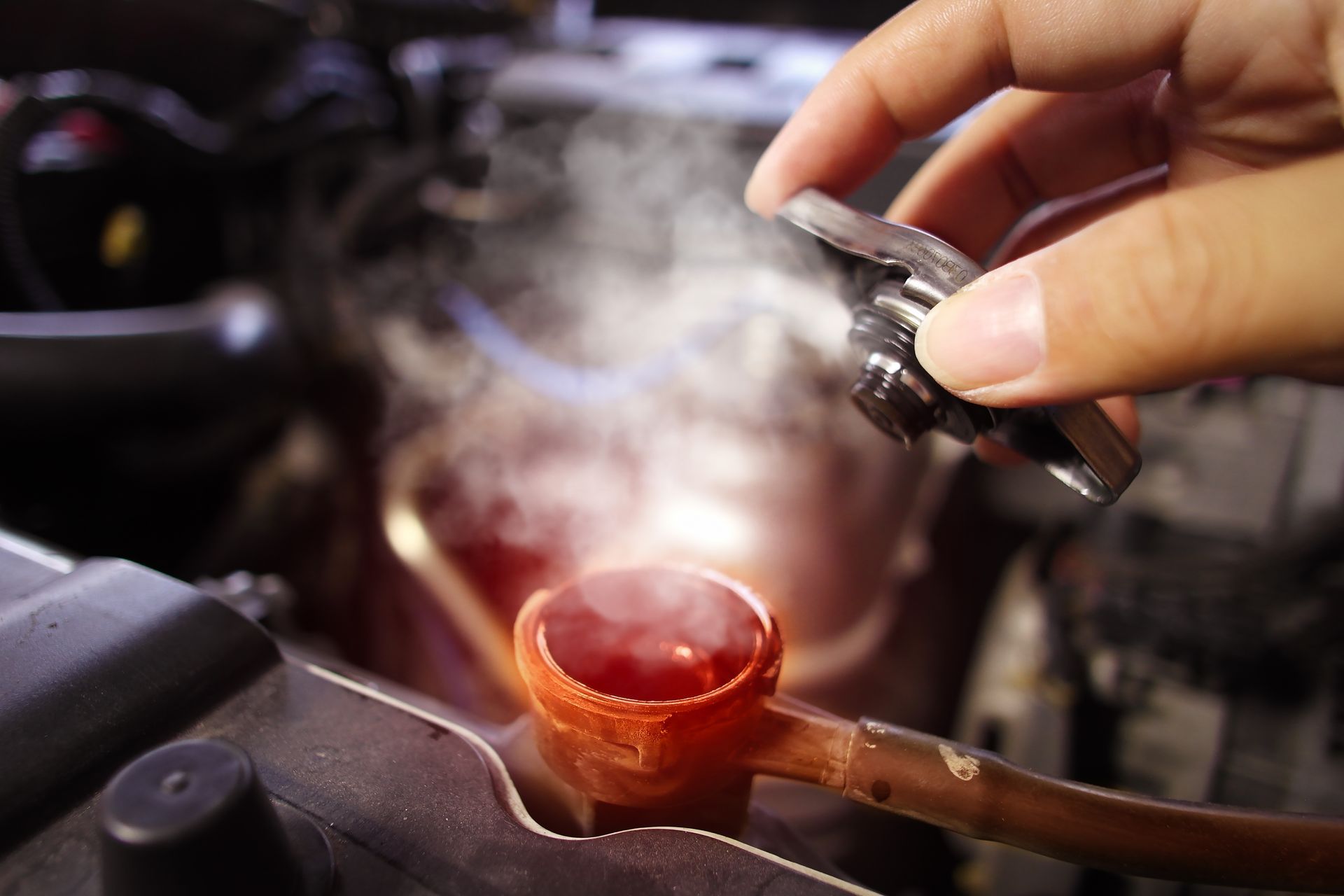
When most drivers think about car maintenance, they think oil changes, tire rotations, and maybe brakes. But your cooling system? That one often gets overlooked—until something overheats, a warning light flashes, or steam starts pouring from under the hood. In Conyers, Georgia, where summer temps can soar into the 90s and beyond, your cooling system has to work harder than usual to keep your engine running at a safe temperature. And when it’s not properly maintained, things can go south fast. At Gibbs Automotive, we see cooling system issues spike every spring and summer. In many cases, a simple cooling system flush could have prevented the problem. Let’s walk through what a flush is, why it matters, and how it helps keep your car reliable on Georgia roads. What Does the Cooling System Do? Your vehicle’s cooling system helps regulate engine temperature, especially when you're sitting in traffic, driving long distances, or using the A/C during a hot day. It does this by circulating coolant—also called antifreeze—through the engine and radiator, absorbing heat and keeping everything in the right operating range. Without a functioning cooling system, your engine would overheat quickly. That kind of heat can warp cylinder heads, damage gaskets, and cause expensive engine damage. What Is a Cooling System Flush? Over time, coolant breaks down. It becomes acidic, collects rust particles and debris, and loses its ability to regulate heat. When that happens, it can start to corrode your radiator and other metal components inside your engine. A cooling system flush removes the old, dirty coolant from your system and replaces it with fresh fluid. It also clears out rust, scale buildup, and anything else that could clog your radiator or hoses. This isn’t the same as just topping off your coolant. A flush actually forces the old fluid out of the system entirely, which is critical if you’ve been running the same coolant for years or you’re driving in high-heat conditions like we have here in Conyers. Signs Your Vehicle May Need a Cooling System Flush It’s not always obvious that your coolant is old or ineffective. But there are some signs that usually indicate it's time for a flush: The temperature gauge is running hotter than normal You see steam or notice a strong smell after driving The coolant in your reservoir looks brown, dark, or sludgy You hear bubbling sounds after shutting off the engine Your heater isn’t working well (yes, that can be related) It’s been over 30,000 miles or 2 years since your last flush Even if you’re not seeing these symptoms yet, scheduling a flush as part of your spring or summer maintenance can prevent them altogether. How Often Should You Flush the Cooling System? It depends on your vehicle, driving habits, and the type of coolant used. Many manufacturers recommend flushing every 30,000 to 50,000 miles, but that can vary. In hotter climates like Georgia, or if you’re doing a lot of heavy driving (towing, stop-and-go traffic, long commutes), you may want to flush it more frequently. We can check the condition of your coolant during any routine visit to Gibbs Automotive. If it’s still in good shape, we’ll tell you. If it’s time for a flush, we’ll walk you through it. What Happens If You Don’t Flush Your Cooling System? Skipping a flush can lead to several issues: Coolant leaks from corroded hoses or seals Clogged radiator or heater core Overheating, especially in summer Permanent damage to the water pump or engine. And once those things happen, you're looking at repairs that cost far more than a basic cooling system service. Think of a flush like preventive medicine for your engine—it keeps the system healthy and protects you from major headaches down the road. Why Summer Is the Best Time to Get This Done When the weather heats up, your engine is under more stress. Every traffic jam, long drive, or quick trip with the A/C cranked adds heat that your cooling system has to manage. Scheduling a flush now, before Georgia’s full summer heat kicks in, gives your vehicle a head start. It’s one of the smartest things you can do to ensure reliability through the warmest months of the year. Why Conyers Drivers Choose Gibbs Automotive for Cooling System Services At Gibbs Automotive, we help drivers stay on top of the services that matter—not just the ones that are easy to remember. Our team of ASE-certified technicians will inspect your entire cooling system, test your coolant, and perform a complete flush if needed. You’ll never get a generic one-size-fits-all service. We match the correct coolant to your vehicle’s specifications and make sure the job is done right—no shortcuts, no guesswork. Final Thoughts Cooling system flushes don’t get as much attention as oil changes or brake checks, but they’re just as important—especially in Georgia. If it’s been a while since your last flush, or if your engine is starting to run hotter than usual, bring your vehicle to Gibbs Automotive in Conyers. We’ll make sure your coolant is fresh, your system is clean, and your engine is ready to handle anything the summer throws its way.
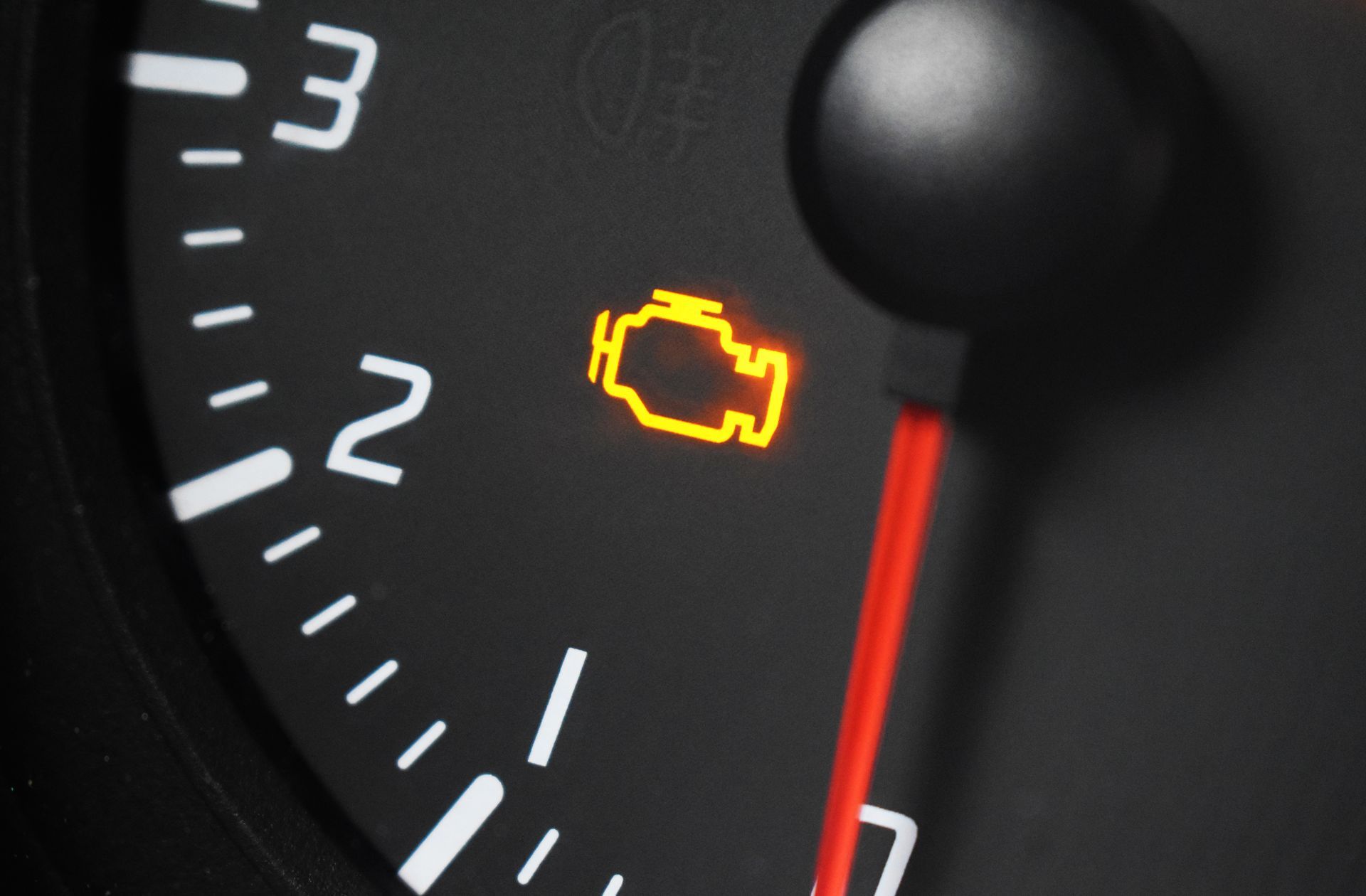
It’s one of the most common (and most frustrating) moments in car ownership. You’re driving through Conyers, everything seems fine, and suddenly the check engine light pops on. No sounds. No smoke. No obvious issue. Just that little orange glow staring you down from the dash. At Gibbs Automotive, we get calls about this almost every day—what does it mean? Can I keep driving? How serious is it? The answer depends, but one thing’s for sure: the check engine light should never be ignored. Even if your vehicle feels like it’s running fine, that light is your car’s way of telling you something needs attention. Here’s what you need to know if your check engine light comes on, and how we help Conyers drivers figure out the issue quickly and affordably. What the Check Engine Light Actually Means The check engine light is part of your car’s onboard diagnostics system. When a sensor detects something outside the normal operating range—whether it’s an issue with your engine, exhaust, fuel system, or transmission—it sends a signal to the computer, which triggers the warning. Some problems are minor, like a loose gas cap. Others are more serious, like misfiring cylinders, faulty oxygen sensors, or failing catalytic converters. The tricky part is that you can’t tell how serious the problem is just by looking at the light. That’s why getting it scanned with the proper diagnostic tools is the best way to know what’s really going on. Flashing vs. Solid Light: What’s the Difference? If your check engine light is solid , the issue is likely non-urgent, but still worth checking soon. It could be related to emissions, fuel trim, or an engine sensor that’s starting to fail. You can usually keep driving safely, but you shouldn’t delay the diagnosis too long. If your check engine light is flashing , that means something more serious is happening right now—often engine misfires that could damage the catalytic converter. In that case, it’s best to pull over and call a trusted shop like ours before continuing. What Are the Most Common Causes? At Gibbs Automotive, we’ve diagnosed just about every type of check engine light issue under the sun. Here are some of the most common reasons we see: Loose or faulty gas cap Failing oxygen sensor Bad spark plugs or ignition coils Mass air flow sensor failure Catalytic converter trouble Fuel injector issues Transmission sensor errors Evaporative emissions leaks. Each of these has a different repair path, and most of them can’t be diagnosed without scanning the system properly. That’s where we come in. What Happens During a Diagnostic Scan? When you bring your car to Gibbs Automotive, we use professional-grade scan tools to read the trouble codes from your vehicle’s computer. These codes tell us what system triggered the alert and help narrow down the source of the problem. But we don’t stop there. Codes are just the starting point. Our ASE-certified techs use their training and experience to trace the issue, inspect the related components, and determine whether the problem is something urgent or something that can wait. Once we know what’s going on, we walk you through it in plain terms—no jargon, no scare tactics. You’ll know what’s causing the light, what your options are, and what it’ll cost to fix. Should You Try to Diagnose It Yourself? We know there are cheap code readers available online or at auto parts stores. They can be useful for basic info, but they don’t provide the full picture. Many codes have multiple potential causes. Replacing parts based on guesswork can lead to unnecessary expenses—or even make the problem worse. We’ve had customers come in after trying to fix a sensor, only to learn the issue was a wiring problem or a completely different part. Our recommendation? Let a shop with the right tools and training take a look first. It’s faster, more accurate, and often cheaper in the long run. How Long Can You Drive With the Check Engine Light On? If the light is solid and the car seems to be running normally, you can usually keep driving for a short time—especially to get to the shop. But waiting too long can cause small problems to become big ones. If the light is flashing, the best course of action is to stop driving and call us. A flashing light often points to an active misfire, which can damage your catalytic converter if left untreated. Even if your vehicle is running fine for now, remember: the computer turned that light on for a reason. Why Conyers Drivers Trust Gibbs Automotive for Diagnostics We’ve been helping drivers in Conyers for years, and check engine light diagnostics are something we handle every day. Our technicians are trained to find the issue quickly and accurately, and our goal is always to give you honest answers without the runaround. We also stand by our work. If the fix doesn’t solve the issue, we’ll make it right. That’s what it means to be a neighborhood shop that takes care of its community. Final Thoughts A check engine light doesn’t always mean disaster—but it does mean it’s time to listen to what your car is trying to tell you. Whether it’s a simple fix or something more complex, Gibbs Automotive in Conyers can help you figure it out, fix it right, and get you back on the road with confidence.
